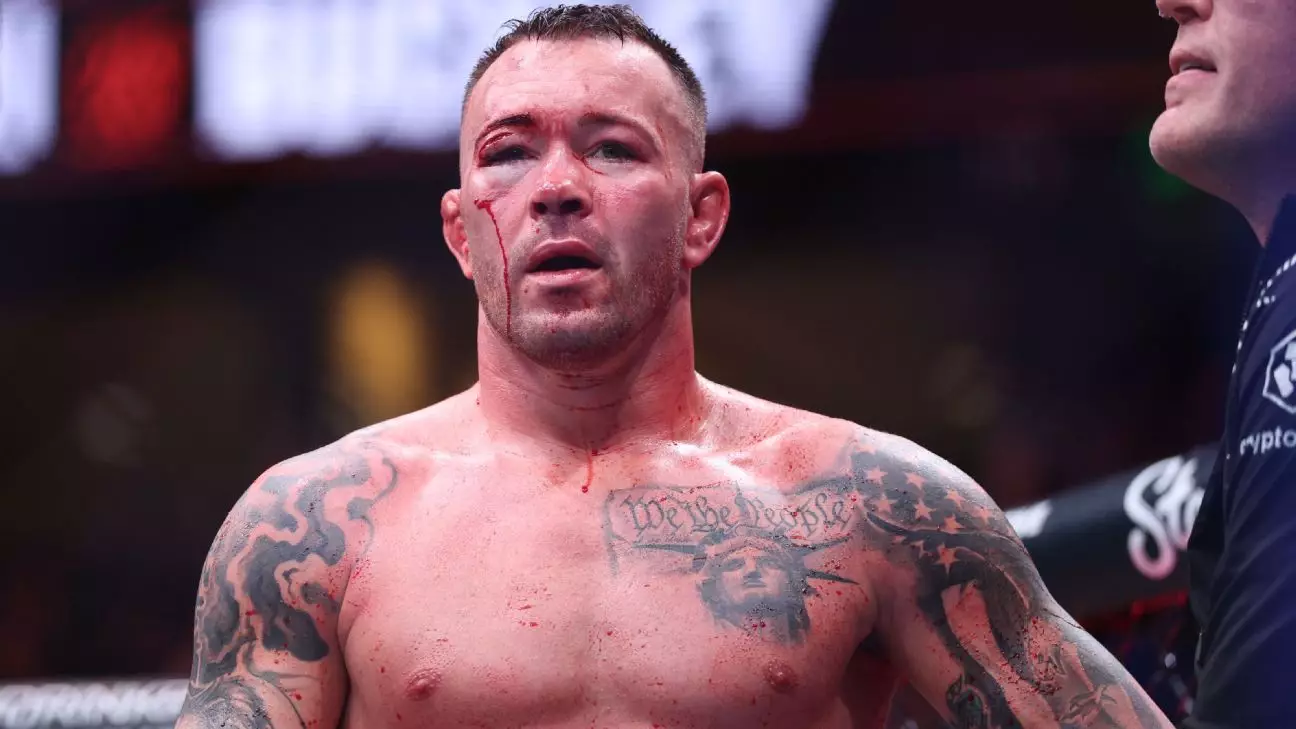In the world of mixed martial arts, fights are often determined by a single moment or decision. Colby Covington’s recent bout against Joaquin Buckley in Tampa, Florida, is a prime example of how quickly a fight can take an unexpected turn. Stopped in the third round due to a significant cut above his right eye, Covington’s post-fight analysis highlighted his disagreement with the referee’s decision. His sentiment resonated with many fans who believe that the fight was far from over, pointing to Covington’s improved performance as the rounds progressed.
As Covington analyzed the fight, he insisted that he was in the midst of mounting a comeback. Claiming to have been “just getting warmed up,” Covington felt that the momentum was shifting in his favor. He noted that the score was tied, and he could sense Buckley’s fatigue—an indication that he was beginning to gain an edge. Such insights not only highlight Covington’s perspective as a fighter, but they also shed light on the psychological tactics that accompany high-stakes bouts. The ebb and flow of energy and strategy in a UFC match are often just as important as the physical exchanges.
Adding another layer to the conversation, Chael Sonnen, a seasoned fighter and commentator, provided his take from inside Covington’s corner. He revealed that he was on the verge of stopping the bout himself due to the severity of Covington’s injury. Sonnen raised valid points regarding the doctor’s role in safeguarding fighters’ well-being. He noted that the sight of blood flowing into Covington’s eye triggered serious concerns, as it posed a threat to Covington’s vision. This tension between fighter resilience and medical safety is a persistent issue in combat sports, raising an essential debate about when it is acceptable to prioritize a fighter’s health over the competitive spirit.
Following the fight, Covington expressed dissatisfaction with the stoppage and pointed to UFC President Dana White’s comments suggesting a different ruling might have occurred in Vegas. This reflects a broader discussion about consistency in officiating and medical assessments across various venues. Fighters and fans alike argue that these decisions can disproportionately affect outcomes, influencing future matchups and rankings. Covington’s frustration is palpable, indicative of the emotional investment one has in their career and legacy.
With this bout serving as Covington’s return to the octagon after a year-long hiatus, both he and his fans are eager for redemption. His declaration to come back stronger signals not only his competitive spirit but also the inevitable nature of sports, where triumph and defeat coexist. As Buckley walks away with an improved record, Covington is left with an added burden of proving that he remains a formidable competitor in the lightweight division.
The stoppage of Covington’s fight against Buckley has sparked valuable conversations about fighter safety, officiating consistency, and the mental aspects of recovery in competitive sports. As he prepares for his next encounter, Covington’s experience serves as a reminder of the unpredictability of the UFC and the complex interplay between physical prowess and strategic decision-making.


Leave a Reply